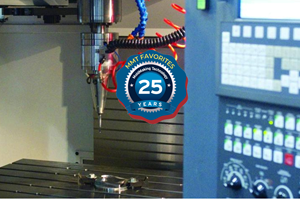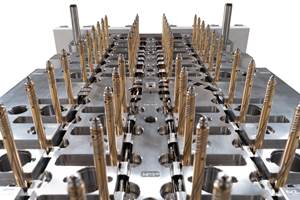How Stable Are the Processes in Your Plant?
RJG, Inc. (Traverse City, MI) has assembled the Process Stability Dashboard to manage quality for all molds that run in your plant whether they have in-cavity sensors or not.
Share
Read Next
RJG, Inc. (Traverse City, MI) has assembled the Process Stability Dashboard to manage quality for all molds that run in your plant whether they have in-cavity sensors or not.
Over time our customers have helped us understand that processes are often not set up properly as documented or they get changed after setup. If you have molds without cavity pressure monitoring you may not be able to see these changes occurring and the consequent effect on quality. Occasionally we are able to share with customers our experience that people are often a larger process variable than material. Usually this elicits a groan and a rolling of the eyes that lets us know this fact strikes a nerve.
Since you cannot find or manage these variables by walking around the plant an overview is provided on the eDART™ network that shows each machine's status and how much it has deviated from the process it should be running. Once you record a proper process "template" the eDART sends a record of any deviations in machine speeds and pressures from that template to the overview. A quick scan down the overview screen will let you know any processes that aren’t being run as they should be.
The eDART also observes changes in material viscosity comparing them with the value from the saved template. You may see all of the processes properly set in the machines but rise or fall in material viscosity on this second column of meters. This allows you to re-set the process for the different material before the part quality suffers.
"I thought RJG was all about cavity pressure," you say. Well, that is still true. Yet we recognize that it is not practical to put cavity pressure into every mold all at once. The next best thing is to monitor the machine and material and make corrections in a systematic way. If you have a particular problem or critical molds that require in-cavity sensing you can add sensors to them as needed. These are then displayed in a third meter that tells you if all of your cavity pressure sensors match their templates.
Our display may look like a production monitoring system. It is not. Production monitoring is a quantitative record of parts made, scrapped etc. Our approach is a qualitative one that answers the question: Is this the right process?
Of course someone will ask, when a meter goes out of the green, "Why?" We supply numerical and graphical tools both in the plant overview and at the machine that let you "drill down" into the causes of the problem. Has the hold pressure changed? Is the screw mixing differently? Has someone adjusted the cooling time? Has the viscosity been rising? This shortens the time to find causes and keeps utilization up.
Using this tool suite with good training and systematic methods you can now get constant feedback that your quality procedures for process setups are being followed. And you can do some intelligent adjustment to processes when material changes.
In short, if you don't know what is broken you can't fix it. With these tools you will know instantly and can stop the internal bleeding that you can't see.
Related Content
The Role of Social Media in Manufacturing
Charles Daniels CFO of Wepco Plastics shares insights on the role of social media in manufacturing, how to improve the “business” side of a small mold shop and continually developing culture.
Read MoreMachine Hammer Peening Automates Mold Polishing
A polishing automation solution eliminates hand work, accelerates milling operations and controls surface geometries.
Read MoreHow to Solve Hot Runner Challenges When Molding with Bioresins
A review of the considerations and adaptations required to design hot runners and implement highly productive injection molding operations.
Read MoreHow to Use Scientific Maintenance for More Accurate Mold and Part Troubleshooting
Discover how adopting scientific maintenance approaches helps improve mold lifespan, minimize failures, and optimize production outcomes.
Read MoreRead Next
How to Use Continuing Education to Remain Competitive in Moldmaking
Continued training helps moldmakers make tooling decisions and properly use the latest cutting tool to efficiently machine high-quality molds.
Read MoreHow to Use Strategic Planning Tools, Data to Manage the Human Side of Business
Q&A with Marion Wells, MMT EAB member and founder of Human Asset Management.
Read MoreAre You a Moldmaker Considering 3D Printing? Consider the 3D Printing Workshop at NPE2024
Presentations will cover 3D printing for mold tooling, material innovation, product development, bridge production and full-scale, high-volume additive manufacturing.
Read More



















